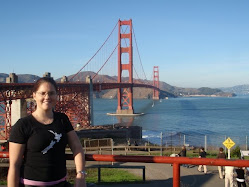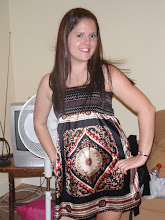5 October 2009 - Monday
6 October 2009 - Tuesday
BELFAST


Here is a little extract I found which explains a bit about the politics and trouble in Northern Ireland and what it looks like from a tourists point of view
Walking northwards through a run-down deserted area - the "no man's land" with barbed wire, fortified shelters, shuttered shopfronts and lots of rubble - and then I saw my first Irish flag. I have entered the Falls Road area - the Catholic Ghetto of Belfast. Here the theme is the opposite – an united Ireland, peace, the Potato Famine (during which more than a million people starved to death - the "Genocide" of Ireland, as some slogans here claim), Hurrah-To-IRA, Down-With-RUC, etc. Some road kerbs were even painted green-white-orange, the Irish national colours. Plus murals on Fidel Castro, Che Guevara and Catalonia.
Just north of Falls Road is the Shankill Road - Protestant area. A "Berlin Wall" separated the two
 parts.
parts.
 After the Black Taxi Cab tour we headed up to Belfast Castle for a quick look around - The familiar
After the Black Taxi Cab tour we headed up to Belfast Castle for a quick look around - The familiar  landmark of Belfast Castle, overlooks the city from a prominent site 400 feet above sea level on the slopes of Cave Hill. This magnificent sandstone building, recently restored by Belfast City Council's Parks Department, has close associations with the city's history.
landmark of Belfast Castle, overlooks the city from a prominent site 400 feet above sea level on the slopes of Cave Hill. This magnificent sandstone building, recently restored by Belfast City Council's Parks Department, has close associations with the city's history.ANTRIM
 Northern Ireland - where the O'Neill's were quite prominent and apparently there is a castle up there somewhere that is the "O'Neill castle", although thats not its actual name. All we found was this ruined castle, but I am claiming it as my own O'Neill castle. Apparently the O'Neills were quite prominent up there so surely its an O'Neill castle!
Northern Ireland - where the O'Neill's were quite prominent and apparently there is a castle up there somewhere that is the "O'Neill castle", although thats not its actual name. All we found was this ruined castle, but I am claiming it as my own O'Neill castle. Apparently the O'Neills were quite prominent up there so surely its an O'Neill castle!Shane's Castle this is the one I was hoping to find, but we couldn't - Shane's Castle,--or, as it was once called, "Eden-duff-carrick,"--has been, since the year 1345, the home of the O'Neills. The Royal house of O'Neill traces its history back to the very beginning of Ireland's story. They were kings of Ulster for one thousand years. Like the branches of a great oak tree that has its roots twined about the very heart of the earth itself, it would be impossible to record a tithe of the events connected with such a people as the O'Neills.
O'Neill History
Imagine this: Off the coast of a faraway, misty land, two chiefs on separate boats were competing to reach the shore. The stakes are high: the winner will get all the land beyond. Both tried their best, rowing as fast as they could but it soon become apparent that one of them was way ahead of the other. Just as the winner was about to reach the shore, the losing chief cut off his hand, threw the blood-dripping hand onto the shore and won the race.
You will see from the murals above that there is a hand on the rock, that is a mural of this story.

- Interesting site - Mythical or Biblical decedents?
LONDONDERRY

We visited a museum in Londonderry dedicated to the Bloody Sunday Masacures which had lots of information about Bloody Sunday and lots of ... momentos from the day. This was a massive event in Londonderry and there are murals everywhere depicting it. You will find that this event touched many lives and that some artists even wrote songs about it - maybe the post popular one you have heard is by U2
You will find that this event touched many lives and that some artists even wrote songs about it - maybe the post popular one you have heard is by U2
The people ran they were unarmed
Across the world we will read of Derry
And those who died by oppressive hands.
—Cruachan, "Bloody Sunday"
Well it was Sunday bloody Sunday
When they shot the people there
The cries of thirteen martyrs
Filled the Free Derry airIs there any one amongst you
Dare to blame it on the kids?
Not a soldier boy was bleeding
When they nailed the coffin lids!
—John Lennon and Yoko Ono "Sunday Bloody Sunday"
And the battle's just begun
There's many lost, but tell me who has won?
The trenches dug within our hearts
And mothers, children, brothers, sisters
Torn apart.
Sunday, bloody Sunday.
Sunday, bloody Sunday.
—U2 "Sunday Bloody Sunday"
After visiting Londonderry we headed to Sligo where we found a cute B & B to stay in for the night.
7 October 2009 - Wednesday
Today we got up early and headed to Galway. We didn't stay in Galway long as we just needed to pop in there to find out the best way to get to the Aran Islands - The Aran Islands a group of three islands located at the mouth of Galway Bay, on the west coast of Ireland. Irish is the main spoken language on all three islands, and is the language used naming the islands and their villages and townlands.
ARAN ISLANDS
We visited the biggest island - Inishmore (Irish: Inis Mór) is the largest of the Aran Islands in Galway Bay in Ireland and has an area of 31 square kilometres (12 sq mi).
When we got off the ferry we thought we might bike around the island but were told we didn't really have enough time so hoped in one of the local's vans for a tour around the island.
First stop:
Dun Aonghasa - this is the most famous of several prehistoric forts on the
Aran Islands. It is.jpg) located on Inishmore at the edge of an approximately 100 metre high cliff.
located on Inishmore at the edge of an approximately 100 metre high cliff.
View back over the Island from the fort

After looking at the fort we stopped in this little cafe for a delicious meal. I had a Guinness and beef stew and it was so yum, and nice for a cold day. After lunch we headed to the seven churches and graveyard for a wander around the monastic ruins.
These cute little houses were all over the island and we were told they were for the fairies!
8 October 2009 - Thursday
Today we got up and headed out and about on our road trip again. Today we stopped at:
Dungarie Castle - Dunguaire Castle is a 16th-century tower house on the southeastern shore of Galway Bay The castle's 75-foot tower and its defensive wall have been restored to excellent condition, and the grounds are open to tourists during the summer. It is thought to be the most photographed castle in Ireland.
Beautiful panoramic view from Dunguarie Castle

 Corcomroe Abbey is an early 13th-century Cistercian monastery located in the north of the Burren region of County Clare. The abbey is noted for its detailed carvings and other rich ornamentation, which are not commonly found in structures from this period. It features a typical cruciform church facing east, with a small chapel in each transept.
Corcomroe Abbey is an early 13th-century Cistercian monastery located in the north of the Burren region of County Clare. The abbey is noted for its detailed carvings and other rich ornamentation, which are not commonly found in structures from this period. It features a typical cruciform church facing east, with a small chapel in each transept.
Poulnabrone Dolmen
is a portal tomb in the Burren, County Clare, dating back to the Neolithic period, probably between 4200 BC to 2900 BC. A crack was discovered in the eastern portal stone in 1985. Following the resulting collapse, the dolmen was dismantled, and the cracked stone was replaced. Excavations during this time found that between 16 and 22 adults and 6 children were buried under the monument. Personal items buried with the dead included a polished stone axe, a bone pendant, quartz crystals, weapons and pottery. In the Bronze Age, around 1700BC, a newborn baby was buried in the portico, just outside the entrance. With its dominating presence on the limestone landscape of the Burren, the tomb must have remained a centre for ceremony and ritual until well into the Celtic period.We then drove to a wildlife centre in County Clare. I can't remember the exact name but it included The Burren Birds of Prey Centre and Ailwee Cave.
At the Burren Birds of Prey Centre we looked around all the birds on display. My favourite 

After the bird show we headed up the road a bit to Ailwee Cave.
This is where a bear used to sleep.
 one of Ireland's most spectacular views.On a clear day the Aran Islands are visible in Galway
one of Ireland's most spectacular views.On a clear day the Aran Islands are visible in Galway  Bay . See picture below. O'Brien's Tower is a round stone tower at the
Bay . See picture below. O'Brien's Tower is a round stone tower at the  approximate midpoint of the cliffs. It was built by Sir Cornelius O'Brien, a descendant of Ireland's High King Brian Boru, in order to impress female visitors. The Cliffs of Moher is amongst the most popular tourist destinations in Ireland, and topped the list of attractions in 2006 by drawing almost one million visitors.[5]. As of June 2009 the Cliffs were in
approximate midpoint of the cliffs. It was built by Sir Cornelius O'Brien, a descendant of Ireland's High King Brian Boru, in order to impress female visitors. The Cliffs of Moher is amongst the most popular tourist destinations in Ireland, and topped the list of attractions in 2006 by drawing almost one million visitors.[5]. As of June 2009 the Cliffs were in  5th place in the Seascapes section of the
5th place in the Seascapes section of the  "New Seven Wonders" competition. The "New Seven Wonders" winners are expected to be announced in 2010.
"New Seven Wonders" competition. The "New Seven Wonders" winners are expected to be announced in 2010.
9 October 2009 - Friday













No comments:
Post a Comment